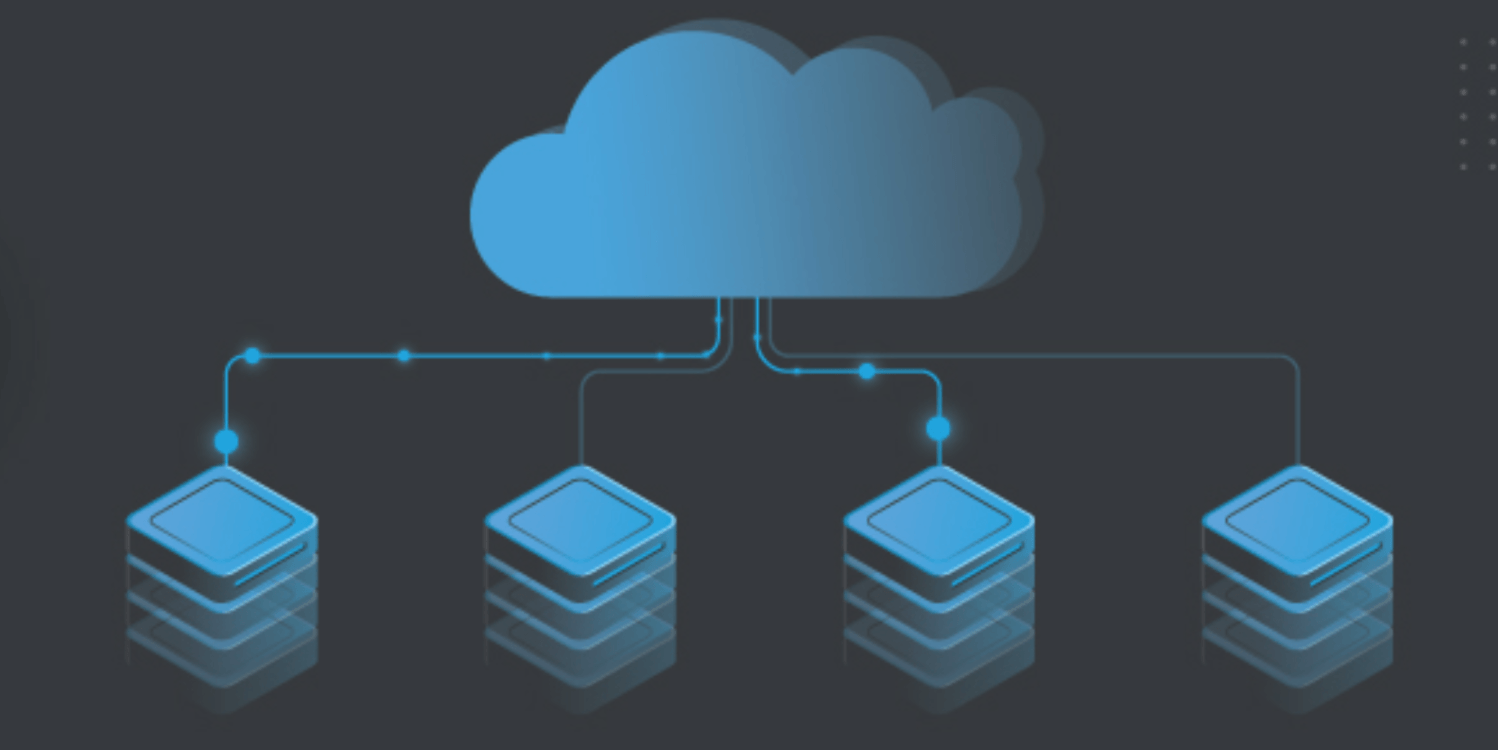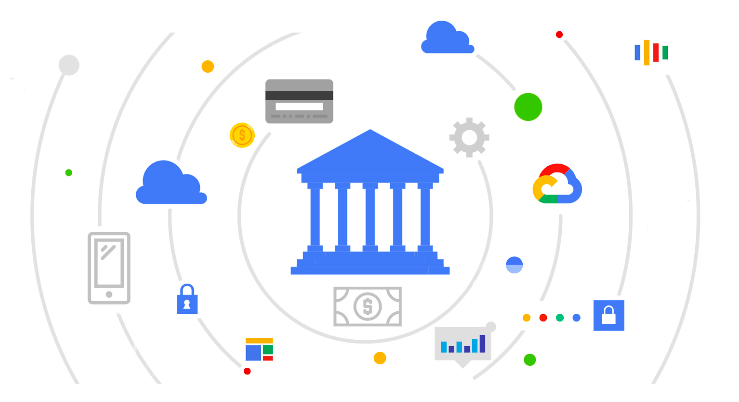Số hóa bùng nổ mạnh mẽ kéo theo khách hàng ngày càng yêu cầu cao…
Overview and benefits of Cloud Management
Managing data with the help of software technology – designed solutions, monitoring system applications is called Cloud Management. Besides storing data as well as the operating structure of the system on the cloud (Cloud Storage Google) then more comprehensive would be Cloud Management. Cloud management strategies have a lot to do with: performance monitoring, security, compliance, and system safety. The following article will summarize the typical information of Cloud Management.
Overview of Cloud Management (cloud management)
Cloud management, also known as Cloud Management, is the process of managing, monitoring, and controlling cloud resources. It includes managing cloud services such as virtual servers, storage, networking, databases and applications on cloud platforms such as Amazon Web Services (AWS), Microsoft Azure or Google Cloud Platform (GC).
Basic functions of Cloud Management (cloud management) include:
- Resource management: Monitor and manage cloud resources such as servers, storage, and networks. This includes automatically instantiating, configuring, monitoring, and managing resources to ensure availability and efficiency.
- Automation: Automate management tasks using automated tools and scripts to reduce effort and reduce the possibility of errors. Automation provides the ability to quickly and controllably deploy, scale, configure, and operate cloud resources.
- Manage access rights: Manage and control user access and assigned permissions in the cloud environment. This ensures that only authorized users can access cloud resources.
- Cost control: Manage and monitor costs using cloud services. This includes tracking and analyzing resource usage, optimizing costs and applying cost management policies and tools to ensure economic optimization.
- Security and regulatory compliance: Ensure security and regulatory compliance in managing cloud resources and data. Security includes measures such as authentication, data encryption, access control and intrusion detection to ensure security and privacy.
- Supervision and support: Monitor cloud system activity to detect problems and handle them promptly.

Why should businesses start implementing Cloud Management for their systems?
Enterprise data centers and enterprise networks are under increasing pressure to increase service speeds, improve reliability and availability, increase service quality while reducing IT costs. There is no room for error when critical business data, communications, and applications run across the network and core infrastructure. Not only are deliverables becoming more demanding, but these demands are being posed against a backdrop of tightening IT budgets combined with greater importance placed on manageability and security.
Cloud Management is a trend and mandatory in the information technology industry for many reasons:
- Flexibility and extensibility
- Cost savings
- Increase availability and reliability
- Security and regulatory compliance
- Automation and automated management
- Easy application integration and management
How to manage resources on Cloud Management (cloud management)
When managing resources on Cloud Management, users can follow these steps:
- Identify resources that need to be managed: First, identify the list of cloud resources you want to manage, including virtual servers, storage, networks, databases, application services and more. This gives you an overview of the resources you're working with.
- Create and configure resources: Create cloud resources using the cloud provider's management interface or tools. This can include creating virtual servers, configuring networks, creating databases, installing applications, and many other resource-related activities.
- Organize and classify resources: Organize and categorize your resources into logical groups for easy management. For example, you can create project teams, teams by function, or teams by environment (test environment, production environment). This helps you organize and navigate resources effectively.
- Supervision and management: Use your cloud provider's monitoring tools and solutions to keep an eye on your resources. Monitor performance metrics, utilization, capacity, and other parameters to ensure availability and performance of resources. Manage repair, upgrade, backup and resource recovery requests as needed.
- Resource Optimization: Optimize your cloud resource usage to minimize costs and increase performance. Use resource monitoring and management tools to understand resource usage patterns, evaluate resource balances, and find ways to optimize resource usage.
- Resource security: Ensure the security of cloud resources by applying security measures such as authentication, access auditing, data encryption, and security monitoring. Apply security rules and comply with regulatory requirements related to data and privacy.
- Automation and automated management: Use Cloud Management's automation features to automatically create, configure, and manage cloud resources. Use automation tools and scripts to minimize effort
Refer:
What do businesses get when using Cloud Management?
Using Cloud Management brings many benefits to businesses, including:
- Flexibility and extensibility: Cloud Management allows businesses to easily expand or contract cloud resources according to actual needs. Increasing and decreasing resources is not only quick but also helps save costs and increase responsiveness.
- Increase cost efficiency: Using Cloud Management, businesses do not need to invest and operate traditional IT infrastructure. Instead, they only pay for the cloud resources they actually use. This reduces starting points and helps businesses focus on core activities.
- Increase reliability and availability: Leading cloud service providers such as Amazon Web Services (AWS), Microsoft Azure and Google Cloud Platform (GCP) ensure system availability and reliability. With Cloud Management, upgrading, maintaining the system and restoring data becomes easier, helping to ensure stable operation of the business.
- Increase security: Leading cloud providers ensure to provide high security standards with advanced security technologies. They provide encryption, access control, data backup and recovery, disaster recovery, and more protection than conventional systems.
- Increase automation: Cloud Management helps businesses automate management processes, from new deployments to automated resource management, monitoring, and resource management. This saves IT staff time and effort, allowing them to focus on more important tasks.
- Easy application integration and management: Cloud Management provides application and service management tools so businesses can easily deploy, manage, and monitor applications in the cloud. This increases flexibility and efficiency in application development and deployment.

Conclusion
The process starts with monitoring usage to understand business performance. Cloud Management is automated and often manages data to protect it from any threats. Today's business requirements are changing day by day and meeting every business need with multiple technologies is the only way to achieve success. Businesses regardless of size strive for success, and Cloud Management provides on-demand computing services.
Better management means better performance and this is extremely essential for businesses as it helps in exercising control over various aspects. Since a well-designed management strategy will monitor and maximize efficiency, reducing the cost of cloud resources, it is necessary to choose Cloud Management services wisely. Business complexity can be reduced with customized cloud management services that ensure real-time profitability along with improved overall performance.
For more detailed product information or to need technical support, you can contact Gimasys - Premier Partner of Google in Vietnam at the following information:
- Hotline: 0974 417 099 (HCM) | 0987 682 505 (HN)
- Email: gcp@gimasys.com
Source: Gimasys



